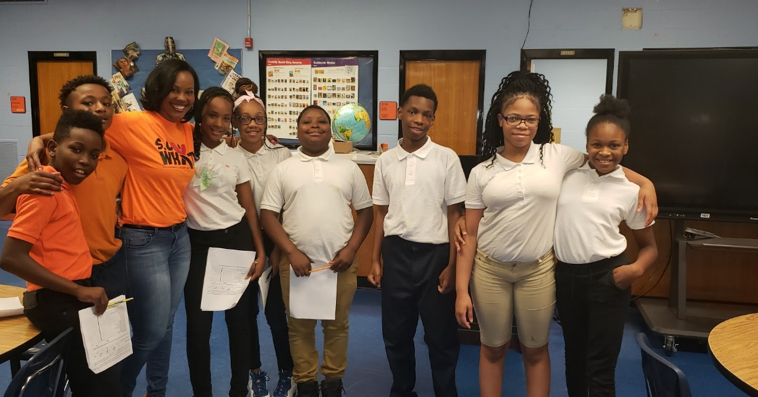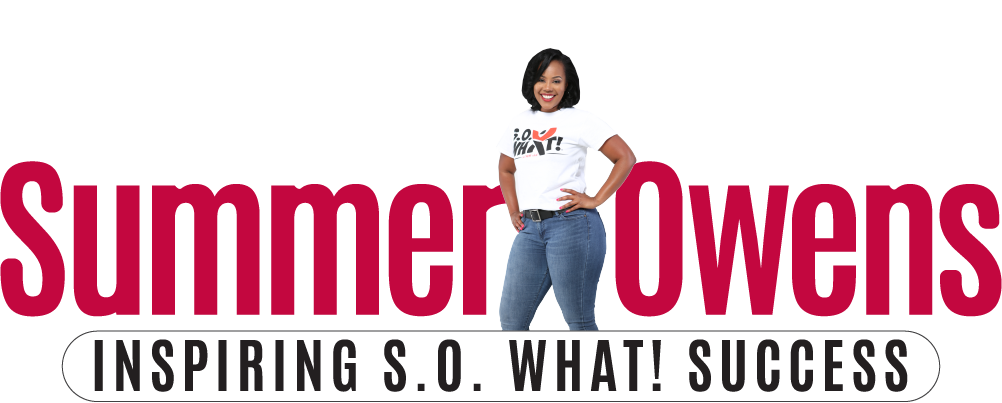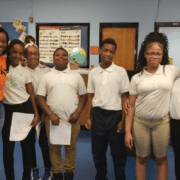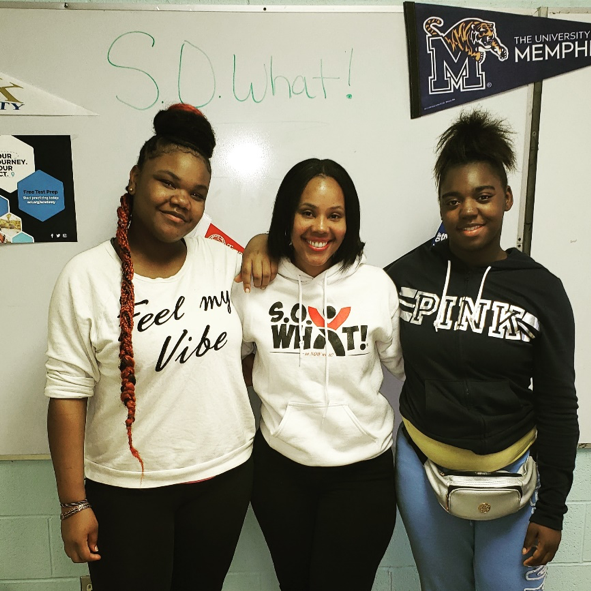So What are Life Skills and Why are They Important?
When I set out to write my memoir, my purpose was simply to help teen mothers with their lives.
I wanted to share life skills to help them be successful in spite of being teen parents.
Then many other people started reading it, and I realized that my story, my book, were supposed to give anyone skills and motivation they need to succeed in life. As I set out to develop the S.O. What! Literacy, Life Skills, and Character Education curriculum, I wanted to learn more about life skills and ensure I created a workbook to teach as many of them as I possibly could.
So What are Life Skills
Life skills are a set of skills which help people thrive and succeed in everyday life. When you have life skills, you can make the most out of life. You acquire life skills by learning about them or through life experiences. And everyone, no matter their age, needs life skills. When a person has life skills, they can:
- handle issues that come their way
- bounce back in the face of adversity
- take care of themselves
- make better employees and citizens
Some of these life skills include collaboration, communication, critical thinking, resilience, problem-solving, creativity, decision making, personal management, and time management.
All these skills are essential to the growth of an individual, the development of healthy societies and diverse inclusive workplaces.

What are the basic essential life skills?
At different stages in our lives, we need a different set of life skills. However, UNESCO, UNICEF, and WHO list 10 basic, essential life skills. These life skills are problem solving, critical thinking, effective communication skills, decision-making, creative thinking, interpersonal relationship skills, self-awareness building skills, empathy, and coping with stress and emotions.
-
Problem-solving
This is the ability to identify and understand problems, weigh options before arriving at the best solution. Problem-solving and decision-making work hand in hand. Problem solving is a three-step process that involves:
I. Identifying the problem
-
- To do this, you need to understand your goals and any obstacles which might stand in your way.
- Get to the real problem by asking questions. The 5 Whys technique will help you. How to do this? Ask ‘Why’ five times. By the 5th ‘Why’ you will have arrived at the actual problem.
II. Looking for all possible solutions
There is always more than one solution to any problem.
-
- List them all out.
- Weigh the pros and cons for each to determine the best option given your circumstances. For example, say you’re trying to decide which college to attend. You list all your college options. Against each option, write the pros and cons. At the end of the exercise you will have what emerges as the best option.
III. Implement the solution
Here is where decision-making comes in. When all the information is laid out before you with the accompanying pros and cons you can choose a solution to implement.
-
Decision-making
We make decisions every single day. It’s about choosing the best option under given circumstances. Decisions range from simple ones like what to eat, or what to wear. To complex decisions like buying your first house. You can make a decision on your own or in a group. The decision-making process usually follows these seven steps:
- Listing all possible solutions
- Understanding the timelines
- Gathering information
- Considering the risks involved
- Deciding the criteria for your decision
- Weighing the pros and cons
- Making your decision
-
Communication skills
Communication skills allow us to send, receive, interpret, and respond to messages from others through a specific medium. Communication can be verbal, non-verbal, or written. Effective Communication skills are even more important in today’s digital world. A lot can be lost in “translation”. You need to take extra care to say what you mean and mean what you say.
Effective communication relies on the following:
- Active listening – this is listening to understand not with an intent to answer
- Building rapport – making a connection with the other person
- Confidence – knowing what you are about and letting it show
- Giving and receiving feedback – in a way that builds up the person receiving the feedback
- Collaboration – working together with others to achieve a common goal
-
Interpersonal skills
Interpersonal skills help us to work well with others. Examples of interpersonal skills include listening, communicating clearly, questioning, demonstrating emotional intelligence, group working, negotiating and influencing and conflict resolution.
-
Critical thinking
This is the ability to think clearly, and logically and see connections between ideas. A critical thinker applies reason and logic to the information they obtain. The process of critical thinking involves questioning where you ask, for example, Who said it? What did they say? When did they say it? Why was it said? Where did it happen? How did it happen?
-
Creative thinking
Also called out-of-the-box thinking. Creative thinking and critical thinking go together. Creative thinking is the ability to think differently about problems and finding new and unusual solutions. You can develop your creative thinking using brainstorming and mind-mapping. Another way is to develop lateral thinking.
-
Self-awareness
Self-awareness is the ability to recognize your strengths and weaknesses. It is also the ability to recognize your emotions, reactions, and how these affect the people around you.
-
Empathy
Empathy is the ability to put yourself in the other person’s shoes. If you’ve heard the statement, “walk a mile in someone’s shoes”, that’s what it means. Daniel Goleman in Working with Emotional Intelligence says,” [Empathy is] awareness of others’ feelings, needs, and concerns.” Empathy is different from sympathy. Sympathy is feeling sorry for someone. For example, if a friend tells you they have lost their job, sympathy is feeling bad that it happened. Empathy is understanding they may feel sad and don’t want to talk about it then.
-
Self-control
Self-control is recognizing your feelings or emotions and mastering/controlling them. We must learn the best way to manage both for the sake of our mental health and interpersonal relationships. For example, when you have self- control, you can be angry and not resort to throwing things or name calling
-
Self-regulation
Stress and emotions are part of life. Self-regulation is about managing the intensity of your feelings or emotions. Using the example above, self-regulation when angry means not raising your voice.
The S.O. What! Literacy, Life Skills, and Character Education builds literacy skills in students while teaching these important life skills. Contact me to help your students or even your own children grow too!
______________________________________________________________________________________________________
I’m Summer Owens, and my passion is helping youth and young adults realize success no matter what obstacles they face. As an international resilience and leadership keynote speaker, author, S.O. What! Success Coach, and creator of the S.O. What! Literacy, Life Skills, and Character Education curriculum, I empower people to say, “So what!” to even their greatest challenges. provide a framework to help people see past their challenges and focus on solutions using the S.O. What! Success System (Overcome Obstacles + Eliminate Excuses + Calculate Choices = S.O. What! Success). Through keynotes, workshops, books, online courses, and workbooks, I use life’s challenges and my own story of resilience as a rape survivor and teen mom success story to help others confidently pursue their dreams.
Looking for an inspiring college motivational speaker? A high school literacy curriculum? A middle school life skills workbook? A great example for teen mothers? A women’s empowerment or single mother’s conference speaker? I’m your girl and will help any audience say, “S.O. What!”.










